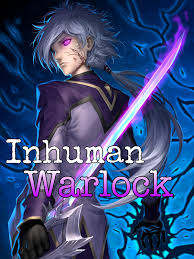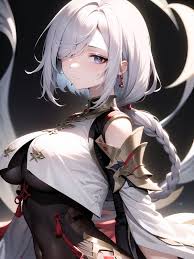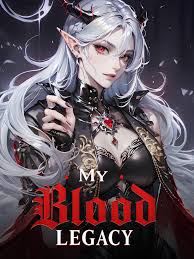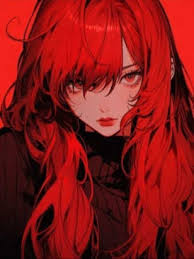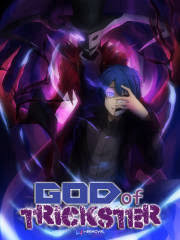The Story in 3 Sentences
Declared powerless and discarded by the very society his legendary parents died to protect, a young boy named Lucifer Azarel endures a torturous death at the hands of cruel scientists, his final breath marked by the chilling smile of his tormentor.
He awakens not as a broken child, but as an entity wielding multiple apocalyptic powers, embarking on a cold, calculated path of vengeance that transforms him from a potential savior into humanity’s most feared and inhuman warlock.
His journey evolves beyond simple retribution, forcing him to confront the blurred lines between hero and villain as he uncovers deeper cosmic truths and forges his own terrifying destiny, leaving the entire universe trembling in his wake.
Why It Stands Out
1. The Phoenix From the Ashes of Betrayal
This isn’t just a resurrection; it’s a complete metamorphosis fueled by the ultimate betrayal. The narrative masterfully captures the shift from a naive child’s despair to the chilling, strategic brilliance of a being reborn with godlike power and a singular, unforgiving purpose. The emotional core of his initial suffering makes his subsequent, emotionless wrath profoundly impactful, turning a common revenge trope into a deeply personal and terrifying odyssey.
2. Villain Protagonist Done Right
Lucifer Azarel stands as a towering figure in the dark protagonist genre. The story doesn’t seek to redeem him in the traditional sense but instead delves into the chilling logic of his actions, forcing the reader to understand, if not condone, his descent. His evolution from a blunt instrument of rage to a cunning, patient strategist makes him endlessly fascinating, a dark mirror reflecting the consequences of a world’s cruelty.
3. A World That Grows With Its Monster
The setting begins as a seemingly straightforward modern fantasy with awakened powers and hidden facilities but rapidly expands into a vast, interconnected universe teeming with ancient clans, cosmic threats, and complex political machinations. This world-building doesn’t happen in exposition dumps but unfolds organically through Lucifer’s journey, making the escalation of stakes feel natural and the final confrontations truly universe-shaking.
Characters That Leave a Mark
There’s Zale Azarel – the spectral legacy of humanity’s greatest hero, whose immense power and sacrifice cast a long, defining shadow over his son’s life and the world’s expectations, turning his name into both a blessing and a curse.
You’ll meet Ayn, who becomes a complex, enigmatic figure orbiting Lucifer’s darkness, her presence hinting at a potential, fraught connection that transcends simple enmity or alliance, embodying the novel’s central theme of blurred moral lines.
And General Maxwell? They’re the one who coldly authorized Lucifer’s disposal, representing the faceless, bureaucratic evil that prioritizes perceived utility over human life, setting the entire tragic chain of events into motion with a single, callous order.
The Flaws Fans Debate
The protagonist’s extreme, unrelenting darkness can be alienating for readers who prefer morally ambiguous or redeemable leads.
Early world-building relies heavily on dialogue, which can sometimes feel like characters are explaining concepts unnaturally for the reader’s benefit rather than their own.
Some early antagonists are portrayed with cartoonish levels of malice, lacking the nuanced motivations that later villains possess, making their actions feel less grounded.
Must-Experience Arcs
Ch. 1–50: The Broken Warlock – Witness the brutal betrayal and death of a powerless child, followed by his terrifying resurrection and the first, raw unleashing of his newfound, multi-faceted powers as he begins his bloody path of retribution against the facility that killed him.
Ch. 300–500: The Warlock’s Gambit – See Lucifer transition from a force of pure vengeance to a strategic mastermind, navigating the complex politics of the awakened world and ancient clans, forming uneasy alliances and setting intricate traps for far more powerful foes.
Ch. 900–1082: Scourge of the Cosmos – Experience the epic culmination as Lucifer confronts the ultimate truths of his existence and power, engaging in universe-altering battles that force him to define his own legacy, far beyond the simple labels of hero or villain imposed by a world he now dwarfs.
Killer Quotes
“Was it truly the end? Or was it the beginning of something… inhuman?”
“They called me useless. They called me dead. Now, let them call me… their end.”
“The strongest protector they could have had was the monster they created. Remember that, as you face the darkness.”
Cultural Impact
Winner of the Silver Prize at the prestigious Webnovel Spirity Awards 2021, cementing its status as a top-tier web novel.
Boasts a massive readership, with over 8 million views on Webnovel, indicating a vast and dedicated global fanbase.
Frequently cited in fan communities for its iconic, chillingly calm protagonist, spawning discussions and memes about “pulling a Lucifer” when someone executes a perfect, cold revenge.
Final Verdict
Start Here If You Want:
A cathartic, dark power fantasy where the underdog doesn’t just win, but obliterates their oppressors with terrifying, godlike power.
A masterclass in the villain protagonist archetype, following a character whose journey is compelling precisely because he embraces his darkness.
A story with relentless pacing and high stakes that escalate from personal revenge to cosmic warfare, ensuring you’re never bored.
Study If You Love:
Exploring the psychological deconstruction of a hero archetype, examining how trauma and betrayal can forge an unstoppable, amoral force.
Narratives that feature intricate, evolving world-building where the setting is a character in itself, growing more complex as the protagonist’s power and understanding do.
The thematic exploration of vengeance, power, and the blurred, often non-existent, line between the monsters we fight and the monsters we create.
Avoid If You Prefer:
Stories with morally upright or traditionally redeemable main characters who operate within a clear ethical framework.
Narratives that avoid graphic violence or dark, psychologically heavy themes stemming from extreme trauma and torture.
Plots where the world and its rules are fully explained upfront, rather than being revealed gradually and sometimes through character exposition.
